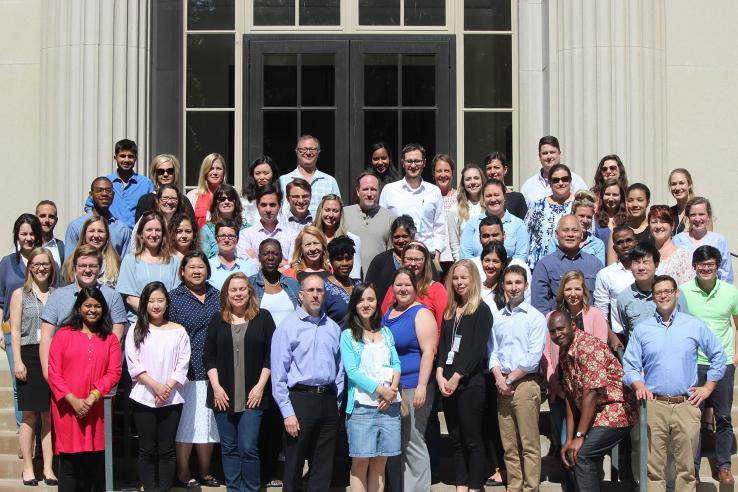J-PAL Global Executive Education 2017

Program Objectives
This five-day course provides participants a thorough understanding of randomized evaluations and a pragmatic step-by-step guidance on conducting one’s own evaluation. It focuses on the benefits and methods of randomization, choosing an appropriate sample size, and common threats and pitfalls to the validity of the experiment. It also covers the importance of a needs assessment, measuring outcomes effectively, quality control, and monitoring—tools that are critical for both randomized and non-randomized evaluations alike.
Program Focus
The following key questions and concepts are covered:
- What is an evaluation?
- Why and when is a rigorous evaluation of social impact needed?
- The common pitfalls of evaluations, and why does randomization help.
- The key components of a good randomized evaluation design.
- Alternative techniques for incorporating randomization into project design.
- How do you determine the appropriate sample size, measure outcomes, and manage data?
- Guarding against threats that may undermine the integrity of the results.
- Techniques for the analysis and interpretation of results.
- How to maximize policy impact and test external validity.
- Understanding and using the Theory of Change framework.
Target Audience
This course is designed for managers and researchers from NGOs, governments, international development organizations, students and foundations from around the world, as well as trained economists looking to retool.
Former participants say:
“I enjoyed this training very much and thought the experience was excellent. I still am buzzing whenever I speak about it. There were many wonderful aspects: the working groups, the quality of the other students, the quality of the TA’s and the seriousness and dedication of the training effort. It was absolutely first class.”
“Great opportunity to design and receive feedback on our own evaluations.”
“Really enjoyed the teaching methods. The initial exposure to case studies was then solidified through lecture and small group work. The constant interaction kept students engaged throughout.”
Key Information
| Dates: | 12 – 16 June 2017 |
| Location: | Massachusetts Institute of Technology Cambridge, MA United States |
| Contacts: | Tom Bangura; [email protected] Janani Akhilandeswari; [email protected] |
The application form is found here and the deadline for submission of all applications is on May 1st 2017.
You can view the fee structure for the course. The fee includes breakfast, lunch, beverages and snacks as well as a one group dinner. It does not include travel or accommodation.
Lecture Slides
Lecture 1: What is Evaluation
Marc Shotland, Associate Director of Training, J-PAL Global MIT, MA
Presentation Slides
Lecture 2: Measurement
Sara Heller
Presentation Slides
Lecture 3: WHy Randomize
Dan Levy, Senior Lecturer in Public Policy, Harvard Kennedy School of Government
Presentation Slides
Lecture 4: How to Randomize
Joeseph Doyle, Erwin H. Schell Professor of Management, MIT Sloan School of Management
Presentation Slides
Lecture 5: Sampling and Sample Size
Benjamin Olken, Director of J-PAL; Scientific Director, J-PAL Southeast Asia. Co-Chair, J-PAL's Political Economy & Governance sector and Professor of Economics at MIT
Presentation Slides
The RCT Experience, from a Practitioner’s Perspective
Christian Soura, Vice President of Policy and Finance at the South Carolina Hospital Association
Presentation Slides
Lecture 6: Threats and Analysis
Margaret McConnell Affiliated Professor; Assistant Professor of Global Health Economics at Harvard School of Public Health
Presentation Slides
Lecture 7: RCT Start to Finish
Sally Hudson, Assistant Professor of Public Policy and Education, University of Virginia
Presentation Slides
Lecture 8: Generalizability
Mary Ann Bates, Deputy Executive Director, J-PAL North America at MIT
Presentation Slides